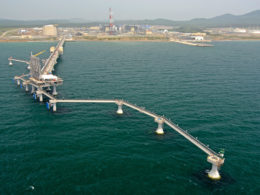Nearly 4.2 million non-EU citizens who fled Ukraine due to the ongoing Russian war have been granted temporary protection status as of 31 October 2024.
The European Union activated the Temporary Protection Directive on 4 March 2022, allowing Ukrainians fleeing the war immediate access to essential services such as healthcare, education, and the labor market. In 2022, the response to the influx of Ukrainian refugees was unprecedented. By July 2022, nearly 6 million Ukrainian refugees were estimated to be in continental Europe. As of early 2023, reports indicated that over 8 million Ukrainians had fled their country.
Germany hosts over 1,100 000 people, representing 27.2% of the EU total, followed by Poland with 983,880 beneficiaries (23.4%) and Czechia with 379,370 (9.0%), according to official migration statistics.
The demographic breakdown shows a significant gender and age distribution: adult women comprise 45.0% of beneficiaries, children account for 32.0%, while adult men represent 23.0% of the total population under protection.
"The data underscores the EU's substantial commitment to supporting Ukrainian displaced persons," says a European Council spokesperson.
The Council's decision on 25 June 2024 extended temporary protection for these individuals from 4 March 2025 to 4 March 2026.
Relative to national populations, Czechia demonstrates the highest absorption rate, with 34.8 beneficiaries per thousand residents, followed by Poland (26.9) and Estonia (25.3), compared to the EU-wide average of 9.3 per thousand.
The report, based on source datasets migr_asytpsm and migr_asytpspol, highlights minimal fluctuations in protection status numbers between September and October 2024, with marginal increases in Germany, Poland, and Spain, and a notable deregistration in Lithuania.
Read also:
- Norway considers border fence with Russia to ehance security amid fears of refugee influx
- Founder of Ukrainian refugee aid charity in Czechia charged with multi-million grant fraud
- New Hungarian law may displace thousands of Ukrainian refugees





